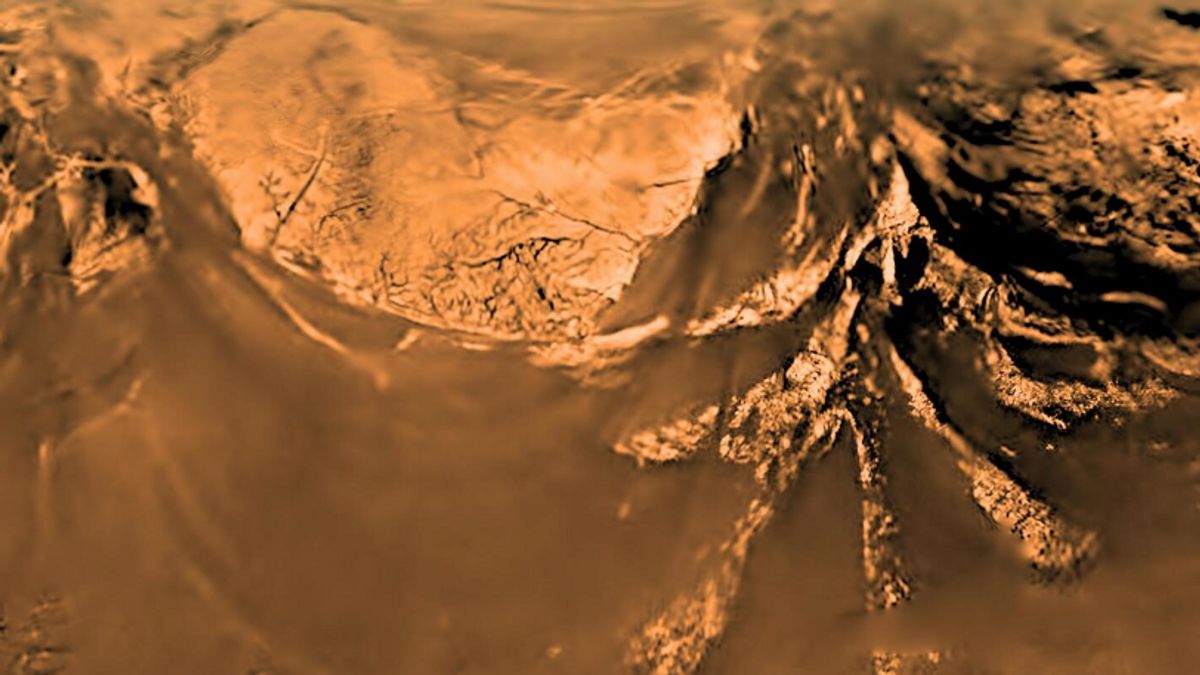JAKARTA Titan, Saturn's natural satellite, is one of the months scientists continue to research. This month is believed to have signs of life and was used as an alien residence.
Several studies suggest that Titan has organic molecules rich in methane and has solids with carbon base material. However, studies from Western University dismissed hopes of finding aliens.
Titan is estimated to have an ocean below the ice surface 12 times the volume of Earth's oceans. Unfortunately, the findings of Western University Astrobiologist Catherine Neish show that Titan's oceans have no signs of life.
"The scientific community is excited to find life in the world of ice outside the solar system and these findings suggest that it is less likely than we previously thought," Neish said, quoted by VOI from the Western University publication site.
Neish and his colleagues are trying to measure the amount of organic molecules on Titan's surface that can be transferred to the lower oceans. The results show that the transferred organic material only reaches 7,500 kilograms of glysina per year.
The mass of glysine or amino acid is equivalent to the mass of a male African elephant. This number is very small to support signs of life. Although the ocean volume is so large, organic materials such as amino acids are very much needed.
SEE ALSO:
One elephant per year inserts glysin into the ocean whose volume is 12 times the ocean volume on earth is not enough to sustain life. In the past, people often assumed that water was the same as life, but they ignored the fact that life needed other elements, especially carbon.
The results of this research on Titan have an impact on other icy moons. The reason is, Europa, Ganymede, to Enceladus have almost no carbon on the surface. If Titan, who is rich in organic materials, has no signs of life, then the rest of the month is more uninhabitable.
"This research shows that it is very difficult to transfer carbon on Titan's surface to the ocean below its surface basically, it is difficult to get the water and carbon needed for life in the same place," Neish explained.
The English, Chinese, Japanese, Arabic, and French versions are automatically generated by the AI. So there may still be inaccuracies in translating, please always see Indonesian as our main language. (system supported by DigitalSiber.id)













